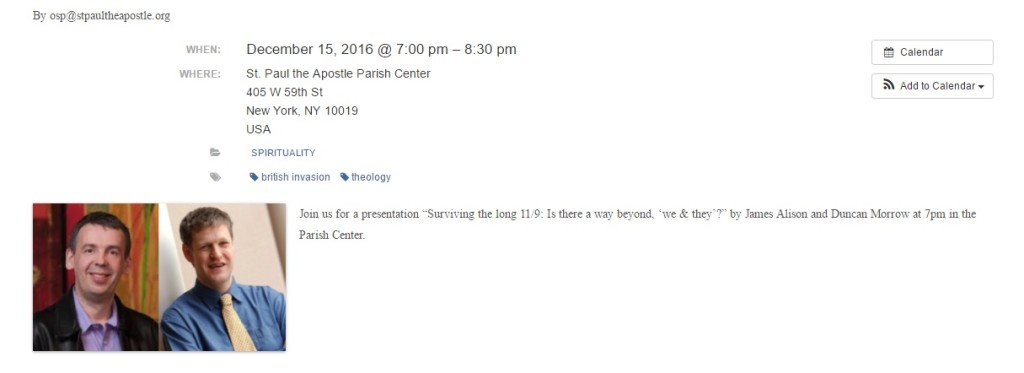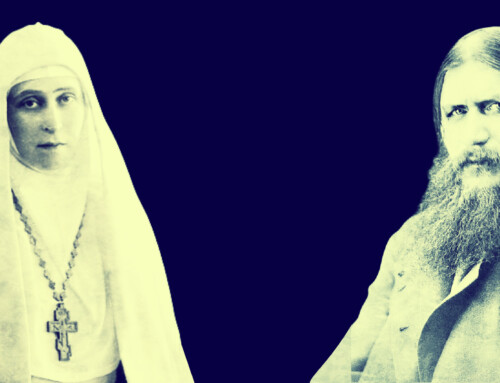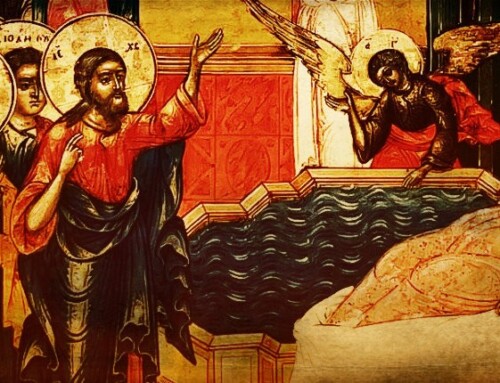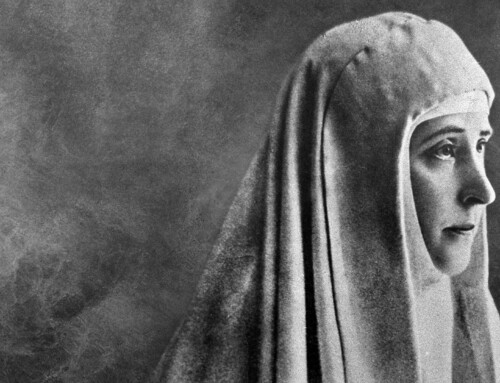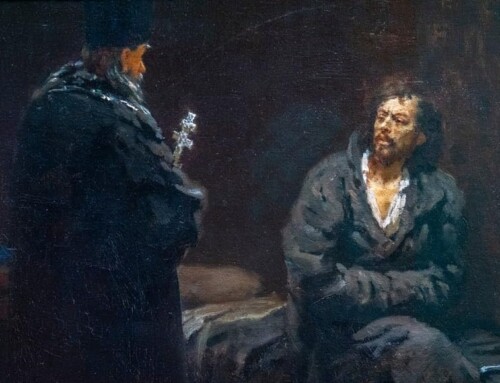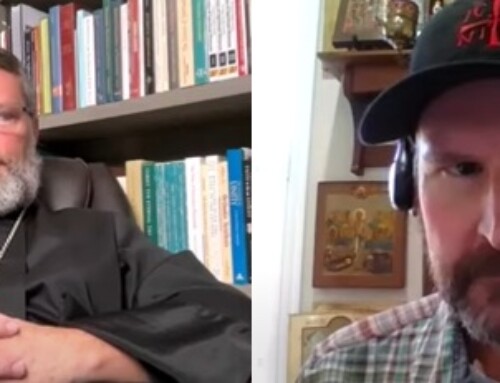(Pictured above: James Alison in an advertising campaign with Brazilian gay publication Arrasa Bi.)
On December 15, 2016, “gay” priest James Alison will speak at St. Paul the Apostle Church in the Archdiocese of New York City. Ordained with the Dominicans in 1978, Alison now describes himself “as a Catholic priest and theologian who is also gay.” In a 2012 interview, he said: “My current canonical status is anomalous. I am a validly ordained priest in good standing, with no penalties or disciplinary matters hanging over me. Although it is many years since I have been associated with the Dominicans, I have not been laicized.” Alison has been openly critical in both his published works, as well as in interviews and lectures, concerning the Church’s teachings on homosexuality. For the most part, his contention that “gay” men and women are created by God, thus the homosexual inclination is not “intrinsically disordered,” and that the Catholic Church’s teachings on the issue will eventually change, is mirrored in the film project “Owning Our Faith,” which was sponsored by St. Paul the Apostle Church and it’s LGBT outreach Out at St. Paul. Here are two quotes from those interviewed for the documentary:
“If we leave it, if we abandon the Church then it’s never going to change. So we have to continue living here, being an example and encouraging other people to be that example because that’s what’s going to change the Church.”
“It’s just not a matter of accepting us, you have to, or tolerate us, you have to encourage us to be who we are. We are God’s creation. And to deny that is to deny that He knows what the hell he’s doing.”
Quotes from James Alison:
My disagreement with the current teaching of the Roman Congregations is about what I consider to be their fundamentally flawed premise of the objectively disordered nature of the inclination.
…the Church can, without any damage to its divine doctrine and mission, change its characterization of gay and lesbian people, and, changing its characterization, change also its position with relation to the civil laws which normalize the lives of such people.
…the Church cannot say of the homosexual inclination that it is a desire which is in itself intrinsically evil, since to say this would be to fall into the heresy of claiming that there is some part of being human which is essentially depraved.
It means noting with joy that we are now closer than ever to being able to imagine that a rejoicing gay heart and a rejoicing Catholic heart can be the same heart, and a normal, and healthy and holy thing. We can imagine a seminar reading Brokeback Mountain in the light of Deus Caritas Est or vice versa…
The same one who creates us redeems us. And he hasn’t redeemed us by despising that which he created, but by making it much more perfect. The moment this becomes clear or accepted, that what we call being “gay” or being “lesbian” is not any sort of pathology, either psychological or physiological, but what I refer to as a regularly occurring non-pathological minority variant in the human condition, whether Church authority likes it or not, the teaching will change and has changed. Because the teaching that stays the same is the teaching about grace. So the question isn’t, “must the Church change its teachings?” but given that we have been shown something new, “how will the Church adapt and face up to this new truth?”
Given the existence, present and future, of committed, long term, partnerships recognised by civil law between adults of the same-sex who happen to be baptised, what should we call these? To what forms of flourishing can they contribute? What might their relationship be to the creation of forms of hospitality to the vulnerable, whether children or other precarious people? Please remember that in the classic understanding of marriage, it is the fact that the two partners are baptised which is what gives the marriage its sacramentality. They are living out a secular reality, marriage, in a way which is elevated by the fact that each is acting out the role of Christ loving his Church by giving his life, even unto death, for the other.
What is certainly true is that no purpose at all is served by seeing these realities as in principle in rivalry with each other, as though same-sex marriage somehow cheapens opposite-sex marriage. Likewise, should it indeed turn out that marriage between two baptized persons of the same sex is not sacramental in exactly the same sense as opposite-sex marriage, then whatever form of sacramentality does turn out to be proper to same-sex couples would certainly not be “second best” to the sacrament of marriage. God’s summons to flourishing involves people being called in tailor-made ways, not forced to endure invidious comparisons. There are many mansions in God’s house, and he invites each of us to discover what is his plan for each one of us—we are called by name, not by category.

